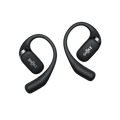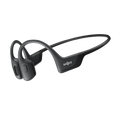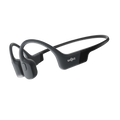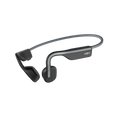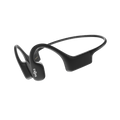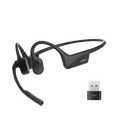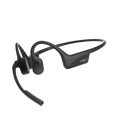Hey, #262Squad. Kim is 1-month into her Honolulu Marathon training journey and a few others on Team AfterShokz have been inspired to join her! Our first-time Marathoner questions are piling up, so we’ve asked our friends and partners at BibRave to drop some knowledge about how to eat and drink on-the-run! Below are some of the basics they’ve outlined for us:
1. How much and how often should I drink?
The answer to this question, as with most things about Marathon training, is that it is SO personal. What’s hyper important is to try out different options on your training runs so you find what works for YOU and feel confident about your approach on race day.
Tip: Make sure you plan to take hydration on every. Single. Long run. You can start drinking based on thirst, but often that can be a lagging indicator and by the time you are thirsty, you’re already dehydrated. So if you find that you’re feeling thirsty or dehydrated on your runs, then definitely drink earlier and more frequently. You have 12 more weeks to practice!
2. Why do I need to drink more than just water? Why are electrolytes important?
There is so much science behind all the crazy stuff that happens to your body during a Marathon. We’re not experts, but we have talked to experts and highly recommend listening to Episode 97 of The BibRave Podcast: Mastering Fuel and Hydration for Your Upcoming Half or Full Marathon, where we talk to Nutritionist and Olympic Trials Qualifier Katie Hynes about how to optimize your fueling on race day. Here is our very basic description of what happens: when you sweat, you’re sweating out more than just water. You’re also sweating out key nutrients. So the rate of sweat loss over an extended period of time is so great that water alone cannot replenish you. Electrolytes help you retain water (and also manage other bodily functions) to stay hydrated, so be sure to take in electrolytes along with your water! You also need to be thinking about calorie intake, which leads us to the question…
3. What about running fuel keeps you going, and how often should you fuel with this during the run?
This is another great topic covered in Episode 97 of The BibRave Podcast! Here are the non-sciencey basics: Our bodies can turn carbohydrates into usable energy faster than any other fuel source (fat, protein, etc.), and when we are running we need that energy fast. Glucose is one of the main types of carbohydrates that our bodies store for energy. Once we pass a certain threshold (time or mileage) our bodies will burn through our glucose stores which is why it’s critical to be ingesting glucose on the run so you don’t “bonk.” The “bonk” happens when your body doesn’t have enough fuel to support the effort-level or activity - it’s NOT fun. In terms of frequency, this is also so personal! A good gauge is 80-100 calories (about 1 gel) for every 45 minutes to 1 hour of effort, but test this on your runs! You need to get your stomach used to fueling on-the-run AND you may find you need more (or less) to feel your best. Better to learn that now than on race day!
4. How can I prepare for a morning run without being hydrated and fed?
The key to hydration for morning runs is to be sure to stay hydrated the day prior. Keep a water bottle with you throughout the day, and drink often. For fuel, experiment with what works for you. Jessica on Team BibRave can’t eat right before running, so she’ll take fuel on-the-go if she needs it for longer mid-week runs. Tim on Team BibRave can eat an energy bar right before he runs, so he’ll have coffee and a snack before he heads out!
5. What other things should I be thinking about? Can I drink coffee? Should I take vitamins or supplements?
YES, PLEASE DRINK COFFEE! Team BibRave loves ALL the coffee. BUT, again, some people do experience some negative effects from coffee before a run (porta-potty, anyone? 🚽). So, try drinking coffee before your training runs. If the negative effects are too great, then avoid it moving forward. BUT, if it gives you that extra boost to get out the door, keep it in your routine so it’s also part of your race day routine!
As for vitamins and supplements, there are no blanket recommendations that we would make. Again, we are not experts, but unless you have specific issues you are trying to address, just make sure you are fueling with healthy foods. You can also get more tips on Episode 94 of The BibRave Podcast: What to Know About Nutrition and Supplements.
6. Am I allowed to have a beer or glass of wine post-run with my running buddies?
Girl (and boys!), YES! Team BibRave loves to celebrate a good run with a drink of choice. There are some side effects to alcohol, and we also explore this topic with Dr. Josh Kaplan on the BibRave Blog and on Episode 79 of The BibRave Podcast: Drunk on the Run. It’s good to be aware of the effects so you can rehydrate accordingly! As with everything else, how your body responds to alcohol is super personal, so practice, practice, practice.
